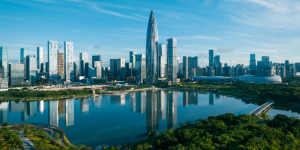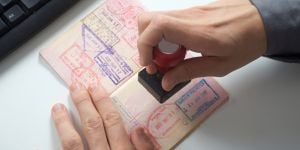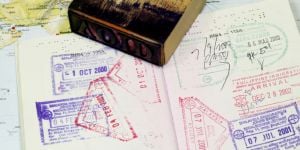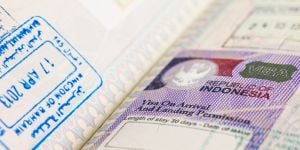
As tourism industries continue to recover from the COVID-19 pandemic, albeit slowly, Southeast Asian nations are exploring the implementation of a visa system modeled after the European Schengen Area. This initiative aims to revitalize tourism and stimulate economic growth across the region.
A Schengen-like visa system to attract international visitors
Thai Prime Minister Srettha Thavisin, who took office in mid-2023, has proposed a visa-free zone encompassing Southeast Asian partners: Malaysia, Cambodia, Myanmar, Vietnam, and Laos. This plan seeks to attract more tourists to the region, which collectively welcomed 70 million foreign visitors in 2022. According to Thavisin, a single visa could significantly increase this number.
Tourism plays a crucial role in the economies of these countries. In Thailand, it contributes 10% of GDP and 20% of employment. Malaysia is another tourism powerhouse, having hosted over 20 million foreign visitors in 2023. Southeast Asian nations with lower tourism numbers could also benefit from this single visa to boost their tourism sectors.
What a single visa could look like
The Schengen visa allows for free movement within the Schengen Area. Foreign nationals can stay in the Schengen Area for up to 90 days within a 180-day period. Schengen visas are valid for 1 to 5 years, provided the holder has a valid passport. The Southeast Asian system is expected to adopt a similar "90-day" visa to enable longer stays for foreign travelers.
The challenge lies in harmonizing the different visa policies among the participating countries. Laos, Cambodia, Vietnam, Thailand, and Malaysia already offer specific visa programs or visa exemptions with other nations, particularly European countries. Therefore, immediate implementation of this new visa is unlikely. Finalizing new bilateral agreements will take time. Nevertheless, it sends a positive message to foreign visitors and investors. Similar to the Schengen Area, other regions have also adopted single visas, such as the East African Community (EAC). The Gulf Cooperation Council (GCC) is also considering a common visa.
Benefits of a single visa for expats in Southeast Asian countries
A "Schengen-like visa system" would be equally beneficial for expats. During his meetings with foreign leaders, Thai Prime Minister Thavisin has particularly targeted investors and business leaders. A common visa for Southeast Asian countries would facilitate their movement within the region. Southeast Asia is a traditionally popular destination for foreign investors. The industrial sector receives a significant share of foreign direct investment (FDI) due to large-scale projects (in Vietnam, Thailand, Malaysia, Cambodia, etc.). FDI in Thailand and Malaysia has significantly increased, with 22% and 37% growth, respectively.
Expatriate workers could also benefit from the common visa. The new system would allow for free movement within Southeast Asian countries. This would also be advantageous for those considering relocating to a Southeast Asian country. The visa would allow them to more easily "test out" their potential expatriation destination.
The practical details of this visa project remain to be determined. The Schengen visa application process is known for its complexity. What choices will the Southeast Asian countries make? The simplicity of procedures would be an additional advantage for expats.
The proposed Southeast Asian visa-free zone, inspired by the Schengen Area, holds the potential to revitalize tourism, stimulate economic growth, and facilitate movement for both visitors and expatriates. While challenges exist in harmonizing visa policies and implementing the system, the potential benefits are substantial. The success of this initiative will depend on the commitment and collaboration of the participating nations.



















